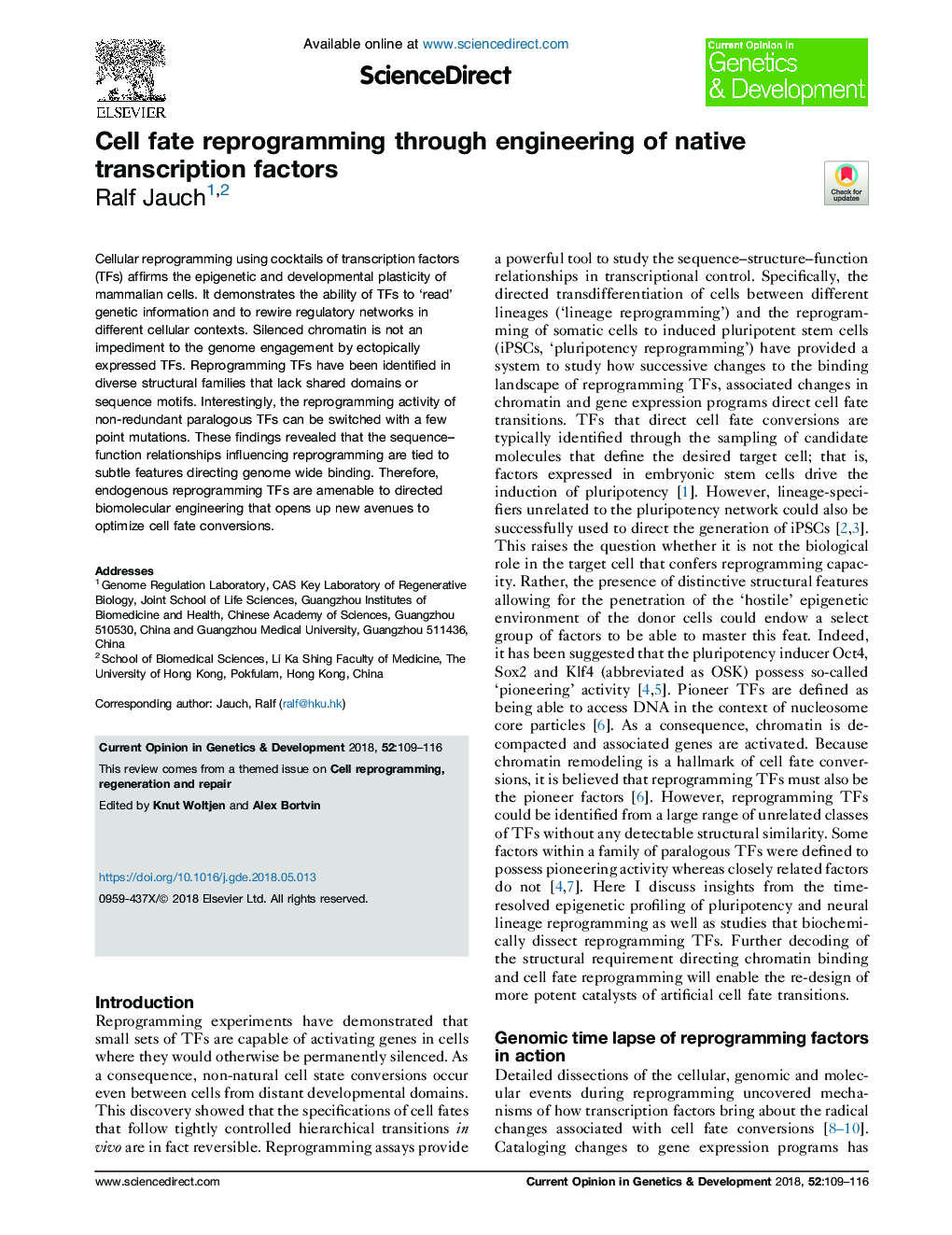| Article ID | Journal | Published Year | Pages | File Type |
|---|---|---|---|---|
| 11033845 | Current Opinion in Genetics & Development | 2018 | 8 Pages |
Abstract
Cellular reprogramming using cocktails of transcription factors (TFs) affirms the epigenetic and developmental plasticity of mammalian cells. It demonstrates the ability of TFs to 'read' genetic information and to rewire regulatory networks in different cellular contexts. Silenced chromatin is not an impediment to the genome engagement by ectopically expressed TFs. Reprogramming TFs have been identified in diverse structural families that lack shared domains or sequence motifs. Interestingly, the reprogramming activity of non-redundant paralogous TFs can be switched with a few point mutations. These findings revealed that the sequence-function relationships influencing reprogramming are tied to subtle features directing genome wide binding. Therefore, endogenous reprogramming TFs are amenable to directed biomolecular engineering that opens up new avenues to optimize cell fate conversions.
Related Topics
Life Sciences
Biochemistry, Genetics and Molecular Biology
Developmental Biology
Authors
Ralf Jauch,
